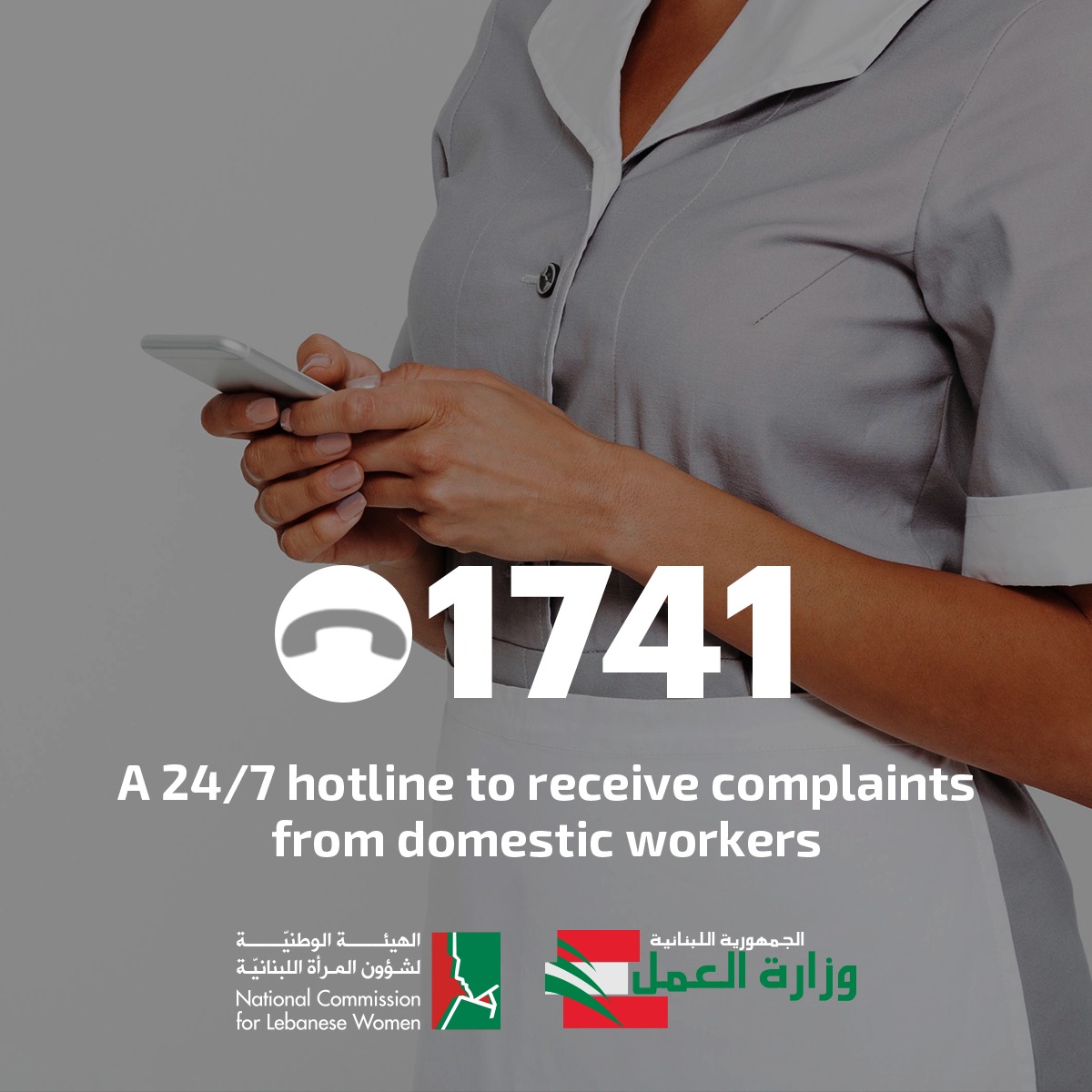The Ministry of Labor and the National Commission for Lebanese Women have launched an awareness-raising campaign urging domestic workers to call the 1741 Hotline of the Ministry of Labor to file complaints, seek support or consultation.
Social workers receive and follow-up these complaints using a specific mechanism established in collaboration with the International Labour Organization (ILO), and several concerned NGOs. Social workers also provide psychological support to domestic workers and direct them to relevant authorities.
Though most of the said workers are still earning their own and their families living from their work in Lebanon, they have been living in harsh conditions since the beginning of the economic crisis, due to the measures imposed in response to COVID-19’s negative effects. The consequent deterioration of the economic conditions of some employers have obliged them to delay paying salaries, especially with the rise of the dollar exchange rate. Moreover, some sponsors had to stop paying salaries, and to annul contracts, leaving domestic workers homeless and displaced in front of the embassies of their respective countries.
In this context, the Ministry of Labor has taken a series of measures to face this crisis, and coordinated with the relevant embassies, the General Security Forces and the General Directorate of Civil Aviation to set up a procedure to ensure the safe and voluntary return of foreign female domestic workers to their countries. It also facilitated the transfer of Ethiopian domestic workers staying outside their embassies in Lebanon to a decent shelter, and made sure that they undergo free PCR tests before they return to their country, in collaboration with a number of non-governmental and charity organizations.
In the framework of the implementation of the first stage of the roadmap drafted by the Ministry of Labor in order to dismantle the Kafala/ sponsorship system currently adopted in Lebanon, the Ministry, in cooperation with the ILO and the relevant stakeholders, has drawn up the final version of the unified labor contract pertaining to the female domestic workers. The contract was then presented and discussed in details during a national consultation, in preparation for its approval by the Ministry of Labor.
The Ministry of Labor is holding a series of extensive meetings in order to amend the Lebanese Labor Law. One of the amendments that it is currently working on approving is centered on the protection of domestic workers in order to ensure that their work meets the specifications of decent work.
Launching and activating the 1741 Hotline services intended for receiving complaints from domestic workers, is one of the main steps that will contribute in helping this category of workers in Lebanon, providing them with support, and making sure that their rights and specific conditions are respected.

